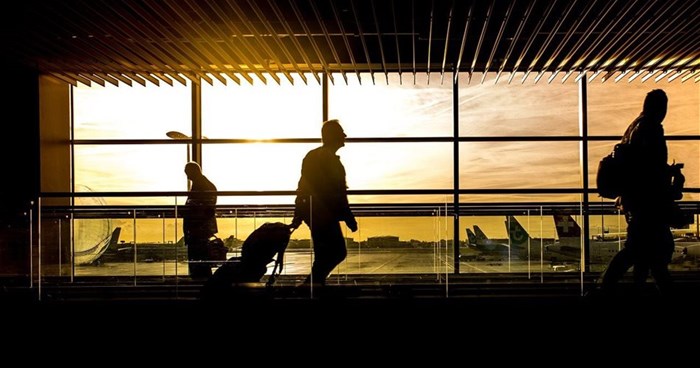It will be a crying shame for our country if 'flight shaming' grounds the tourism sector.
As increasing numbers of people become more conscious of their environmental impact on the world the focus has inevitably turned to what is perceived as one of its biggest polluters, flying.
The premise is very simple; flying is bad for the climate because it increases your carbon footprint significantly, so you should feel shame for contributing to that and take steps to reduce it. In other words, you should stop taking flights in general, particularly long-haul flights.
But for a country like South Africa that relies so heavily on economic gains from the tourism industry, the call to reduce carbon emissions associated with air travel has the potential to cast a dark shadow that could cripple the industry.
Significant contributor to the GDP
Tourism is a vital component of the global economy, contributing significantly to the GDP of many countries and providing jobs to millions of people. In South Africa, when measured against other industries, tourism’s direct contribution to GDP is bigger than either agriculture, utilities (electricity, gas and water) or construction. In 2019 the sector’s direct contribution to GDP was 3.7%, or R209bn. Let that sink in.
If we take the losses experienced from the shutdown of travel during the height of the pandemic in 2020, inbound tourism expenditure declined by 70,5% in 2020 compared with 2019 – a staggering blow for the economy. While the sector is still trying to recover from this decline, there has been a positive resurgence with reports indicating the total number of tourist arrivals between January and July 2023 grew by 71% when compared to the same period in 2022.
These figures highlight the industry’s resilience and potential for growth, despite the challenges posed by the current global economic climate, but we are still only operating at 80% of our pre-pandemic capacity. South Africa is waiting with arms wide open to welcome more tourists from across Africa and the globe to experience our diverse cultures and heritage. But for the most part, the only way to get here is to fly. A sustainability conundrum for conscious travellers. But should it be?
Climate change is a pressing global
First and foremost, it is essential to acknowledge that climate change is a pressing global issue that demands our attention and action. Of course the aviation industry is a significant contributor to greenhouse gas emissions, and reducing its impact is imperative.
While flight shaming has played a role in raising awareness about this issue and encouraging individuals to think critically about their travel choices, the problem arises when flight shaming morphs into a one-size-fits-all approach that demonises all air travel without considering the nuances of each situation.
Case in point: South Africa where tourism is a key source of jobs, economic growth and conservation funding.
So instead of shaming travellers in a bid to get them to cease all travel, shouldn’t we rather be educating travellers on how to travel responsibly so that the impact of the flight pales in comparison to the multiplier impact the tourist dollar has - right down to the grassroots level.
Food for thought
The first thing travellers should consider is quite obvious. When travelling overseas, rather stay longer at the destination. Making travel count with a longer stay means that trips can be taken less frequently.
The real positive impact however begins and ends with the choices travellers make once they’ve arrived, such as choosing providers that display a sustainability badge. Many establishments in South Africa are converting to become more ‘green’. Conscious travellers have a responsibility to seek them out and support them.
Travellers must also take the time to do their research before visiting. In our case for example, it’s not simply the Big 5 that makes our country an incredible destination choice. Travellers who are serious about their role in sustainability must look further than the ‘top attractions’.
Understanding and immersing themselves in the ‘lesser travelled’ South African cultures and destinations means that they can visit places that are off the beaten track and spend their money in areas that need that revenue the most. If they understand that it’s a case of growing the triple bottom line, they can focus on spending that becomes about the sustainability of micro-environments and the people in them.
If travel stops, any hope of economic growth stops. The simple fact is that is more detrimental to an entire economic ecosystem if travellers choose not to fly than it is to take one long-haul flight.
With South Africa recently being honoured by readers of the UK’s Telegraph Travel publication with the prestigious title of "Best Country", and our iconic city of Cape Town claiming the coveted title of "Best City in the World", it will be a crying shame if we are unable to leverage these accolades to reap the economic benefits of more conscious visitors investing their travel spend into our magnificent country.






![Today, Halo and Demographica announce a new specialist agency, Second Rodeo]], headed up by Mike Stopforth (left). Dean Oelschig, managing partner and founder of Halo (right) says they will work as a group but ultimately, each agency will be an individual specialist](https://biz-file.com/c/2505/772543-240x130.jpg?2)





























![Today, Halo and Demographica announce a new specialist agency, Second Rodeo]], headed up by Mike Stopforth (left). Dean Oelschig, managing partner and founder of Halo (right) says they will work as a group but ultimately, each agency will be an individual specialist](https://biz-file.com/c/2505/772543-64x64.jpg?2)






